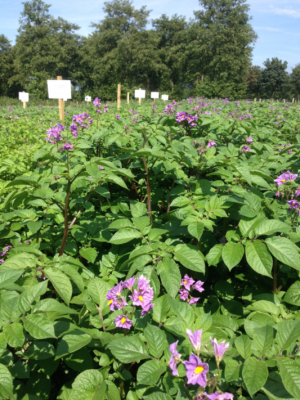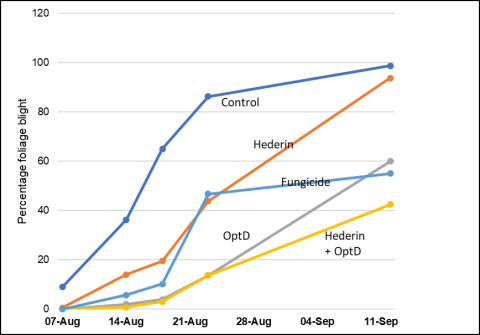Potato blight control using components of indigenous non-food waste plants
Potato blight can hit farm profits hard as the disease can lead to complete crop failure. Recent estimates show that the control of the common disease can cost the industry a staggering £70m across the UK in a bad blight year.
This EIP Wales project investigated a natural biopesticide made from a chemical compound (saponin) sourced from common ivy.
“This project could result in a brand-new market opportunity, to grow common ivy commercially, and to use its natural saponin to help organic growers reduce blight infestation.”
The project was led by representatives from Sarvari Research Trust and Emerald Crop Science and Naturiol Ltd and trial plots were located on two farms, Ty’n yr Helyg near Llanrhystyd and Henfaes farm at Bangor University. They tested two new blight control options; Hederin which is made from ivy leaves and OptiYield Diamond which is a growth stimulant.
Project outcomes
- The Hederin treatment slowed the progression of blight but overall was less effective than the standard fungicide
- When Hederin was combined with OptiYield Diamond the impact was more effective and this showed potential as a blight control
- This combination may be useful in an integrated pest management control programme particularly for organic growers
Further details on the findings from this project can be found in the report below.


